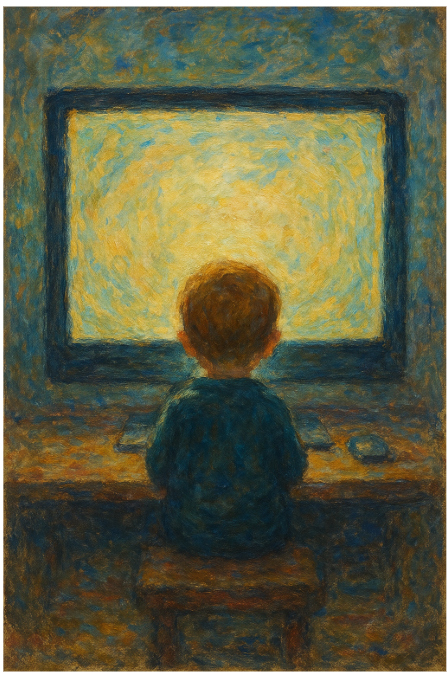"I think we have just been going through a catastrophic experiment with screens and children and right now I think we are starting to figure out that this was a bad idea."
This claim from Klein's recent conversation with Rebecca Winthrop is exactly the kind of statement that makes for good podcasting. It is confident, alarming, and seemingly backed by science. There is just one problem: the research on screen time and language development is not nearly as straightforward as Klein suggests.
Let us look at what is likely one of the studies underlying Klein and Winthrop's claims – a recent large-scale Danish study published in BMC Public Health by Rayce, Okholm, and Flensborg-Madsen (2024). This impressive research examined over 31,000 toddlers and found that "mobile device screen time of one hour or more per day is associated with poorer language development among toddlers."
Sounds definitive, right? The study certainly has strengths. It features a massive sample size of 31,125 children. It controls for socioeconomic factors. It separates mobile devices from TV/PC screen time. It even considers home environment variables like parental wellbeing and reading frequency.
So why should we not immediately conclude, as Klein does, that screens are "catastrophic" for child development?
Here is what gets lost when research travels from academic journals to podcasts: The authors explicitly state that "the cross-sectional design of the study does not reveal the direction of the association between mobile device screen time and language development." Yet this crucial limitation disappears when the research hits mainstream conversation.
Reverse causality is entirely possible. What if children with inherent language difficulties gravitate toward screens? What if struggling parents use screens more with children who are already challenging to engage verbally? The study cannot rule this out, but you would never know that from Klein's confident proclamation.
Hidden confounders lurk everywhere. The study controlled for obvious variables like parental education and employment, but what about parenting style? Quality of interactions? Temperamental differences between children? Parental neglect? Any of these could be the real culprit behind both increased screen time AND language delays.
The nuance gets nuked. The research found NO negative association for screen time under one hour daily. Yet somehow "moderation might be fine" transforms into "catastrophic experiment" in public discourse.
Klein is no dummy. He is one of America's sharpest interviewers and thinkers. So why the oversimplification?
Because humans crave certainty, especially about parenting. We want clear villains and simple solutions. "Screen time causes language delays" is a far more psychologically satisfying narrative than "it is complicated and we are not sure."
Media figures also face incentives to present clean, compelling narratives rather than messy nuance. "We do not really know if screens are bad but here are some methodological limitations in the current research" does not exactly make for viral content.
The next time you hear a confident claim about screens (or anything else) backed by "the research," remember: Correlation studies cannot prove causation, no matter how large the sample. Most human behaviors exist in complex bidirectional relationships. The most important confounding variables are often the hardest to measure. Journalists and podcasters simplify by necessity, even the brilliant ones. Your intuition toward certainty is a psychological quirk, not a reflection of reality.
Screens may indeed have negative effects on development. Or they might be mostly benign. Or it might depend entirely on content, context, and the individual child. The honest answer is we do not fully know yet – and that is precisely the kind of nuanced conclusion that rarely makes it into our public discourse, even from the smartest voices around.
When it comes to AI – the current technological bogeyman – we have even less to go on. We have very little empirical evidence about AI's effects on human development, and almost none of it qualifies as good quality evidence. It is way too early to make any kind of generalizations about how AI may affect human development.
What we do know is the history of technological panics, and how none of them ever fully materialized. Television was going to rot our brains. Video games were going to create a generation of violent sociopaths. Social media was going to destroy our ability to concentrate. And yet, no contemporary generation is stupider than their parents – that we know for sure. Neither TV nor computer games made us stupider. Why would AI be an exception?
Each new technology brings genuine challenges worthy of thoughtful study. But between rigorous research and knee-jerk catastrophizing lies a vast middle ground of responsible, curious engagement – a space that our public discourse rarely occupies.





No comments:
Post a Comment